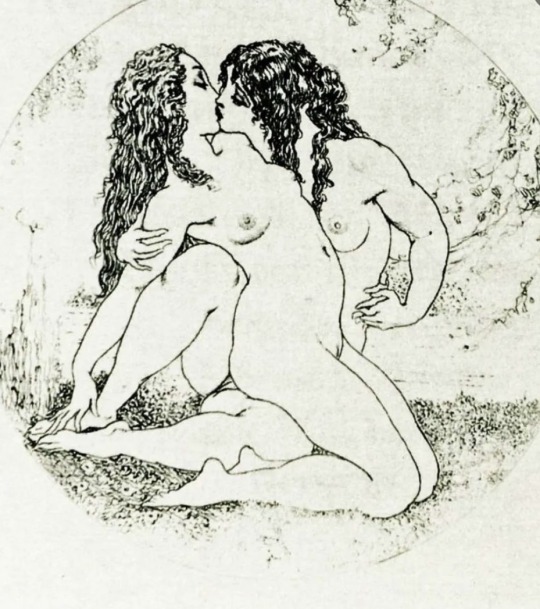Text
vessel: this life i've built for myself is bringing me a lot of pain because i don't want to disappoint anybody but i'm also exhausted
ii:

2K notes
·
View notes
Text
Popular opinion on Nosferatu is killing me because Ellen is textually-- not subtextually, not an allegory for-- textually a CSA victim. She unknowingly originally called for Orlok as a lonely child-- yes, a child, she was explicitly called as such-- looking for any sort of companionship, and Orlok answered and slept with her. "At first it was sweet... yet it turned to torture." "Papa found me once laying, unclothed... I was... my body... my flesh..." After this experience, she was called sinful by her father for being preyed upon, as many CSA victims are. She considers herself unclean, as many CSA victims do. To call this an allegory for Victorian sexual repression and Orlok a manifestation of her desire ignores that she was a child when preyed on by a much older man, and that she freely shows her desire towards Thomas.
In fact, she has sex with Thomas to prove her devotion to him and spite Orlok, to prove her desires don't truly lie with him. If this was merely a tale of repression, would she do that? The contrast is not between a repression of desire and desire, it is between the desire she happily feels for her husband and the desire she reluctantly feels towards Orlok, who hurts and coerces consent from her.
And yes, there is some part of her attracted to him, but that does not negate the fact that she is a victim and she consistently shows revulsion towards Orlok as an abuser. As when Orlok says "Tonight you denied yourself, and thereby you suffer me to vanish up the lives of those you love." and she replies "Denied myself?! You revel in my torture!" The only condition that made her submit to him was the mass death and suffering inflicted on the town because of her refusal. Consent cannot exist under these circumstances, it is coerced by violence. She is forced to relive her trauma and submit to her rape, and dies because of it.
My opinion as to why this has been so widely ignored by popular interpretations of this as a dark gothic forbidden romance is because, firstly, the general pre-existing cultural attitudes towards victims. "She must have wanted it, she must have been asking for it" etc. This mindset is also present in the film, with Orlok being justified as a manifestation of her desire.
Which brings me on to my second point, that the creators do not seem fully aware of Ellen's status as a victim. Lily Rose Depp says "It's a love story with Count Orlok as much as it is her husband," framing the relationship as much more mutual then it is. She emphasizes the mutual yearning, but doesn't seem aware that you can both be attracted to someone and victimized by them at the same time, as she goes on to say "There is a yearning going from, y'know, really between the two of them, rather than just this woman who's kind of, like, chased down by this scary demon that she hates." It's honestly very bizarre to hear the lead actress say this given Ellen is quite literally chased down from Romania to Germany and forced to sleep with him under the threat of death for the entire town, after he's already killed her best friend as punishment for refusing him. To brush all that under the rug and focus on the desire launders the relationship as much more equal than it is.
And thirdly I think there is compulsory sexuality pervading the discourse, as a refusal of sex with someone who she's attracted to is seen as inherently repression rather than being allowed to exist as a justified choice. The context of Orlok's abuse is stripped away, the context that she doesn't want to be with someone who hurt her and those she loves, even if she's attracted to him, is discarded. A part of her enjoyed it, right? And that's all that matters.
74 notes
·
View notes
Text

Sylvia Plath, aged 29, after discovering her husband's affair, in a letter to Ruth Tiffany Barnhouse Beuscher, her former psychiatrist (dated Friday, 20 July 1962)
8K notes
·
View notes
Text
Bravo also to Robert Eggers for probably the least bad depiction of Transylvania in Western vampire cinematic history:
1. Having actual Romanian actors doing the dialogue in Romanian. You'd think this is a low bar to clear but nope.
2. High quality costume design that looks pretty accurate to 19th century Romanian and Roma peasantry, even down to specific braided hairstyles from the Transylvanian region.
3. Depiction of Roma people but refrains from having them as some typical Hollywood exoticizing role like a magical fortune teller etc. They're in like half a scene, just chilling and playing music in front of an inn.
4. Use of the word "strigoi" which are actual spirits in Romanian folklore, unlike the term "vampire" which didn't exist in Romania.
5. Sorry to the Nosferatu moustache haters, but a Romanian nobleman would have had that exact facial hair.
6. Depiction of religion (nuns, churches) that actually looks like Eastern Orthodoxy and not some vaguely spooky goth Christianity.
27K notes
·
View notes
Text
nosferatu (2024) is so fucking funny. they did this joke twice
46K notes
·
View notes
Text
i need vessel to know he is in fact always killing the game even if he thinks he isnt
194 notes
·
View notes
Text

🌟🌟🌟
Designs are open for claims, dm if interested!
2K notes
·
View notes
Text

Hermann Hendrich (1854–1931) - Walpurgishalle: Stardance, c. 1901
source
132 notes
·
View notes











